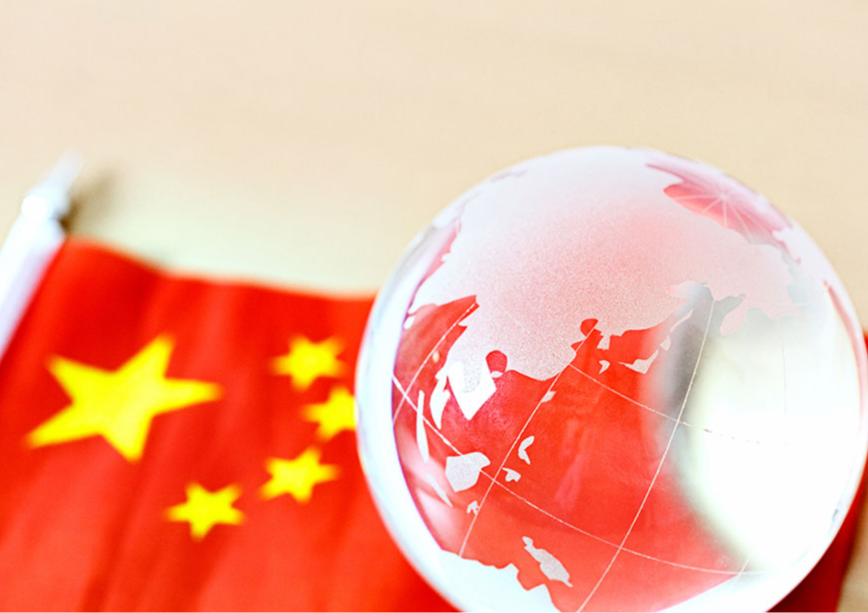
Source Image: Getty
From the stock market rout and the tumbling property market to surging local debt and stagnant consumption, China’s economy has faced multiple challenges in recent months, and a mood of doom and gloom has set in China.
There is a growing realisation that the model or the internal-external opportunities that supported China's rapid economic growth in the last few decades might have ceased to exist and the country is headed for difficult times ahead. Some have been lamenting that with declining productivity, rising production costs, falling return on investment (particularly in infrastructure), disappearing demographic dividend and other factors, China is heading Japan’s way and it may no longer be possible for China now to catch up with the United States (US).
Some Chinese scholars believe that the growing pessimism in domestic public opinion is being worsened by a “large-scale public opinion offensive” launched by the US, in the past few months, under the banner of “Peak China”, implying that China has reached the height of its economic power and can only decline from hereon.
The Chinese version of some top US media outlets like the Wall Street Journal, it points out, has been running special columns dedicated to “China's economic slowdown.”
Renmin University's Chongyang Think Tank recently released a report titled “Absurd Narrative: An Examination of Recent “Peak China” Theories and Recommendations on How to Counter them《荒谬的叙事:西方兴起“中国崛起顶峰论”的梳理及应对建议》, which argues that since US President Biden called China's economy a “ticking time bomb,” in August 2023, a concerted effort is being made by a section of Western strategic community to denigrate China’s economic prospect. From August to December 2023, it notes, there have been more than 160 articles published across various influential Western media outlets, claiming “China's relative strength has peaked”, “China's rise has ended” and “China's recession has begun,” etc. The Chinese version of some top US media outlets like the Wall Street Journal, it points out, has been running special columns dedicated to “China's economic slowdown.”
Officially Chinese diplomats are playing down the “Peak China” discourse as yet another version of the “China's collapse theory”, that had emerged and fizzled out many times in the past 25 years. However, internally, the issue has hit the panic button in China’s government circles.
The Chinese Ministry of National Security’s WeChat public account, in December 2023, published an article titled “ National Security Agencies resolutely build a strong economic security barrier ”( 《国家安全机关坚决筑牢经济安全屏障》). The article strongly warned its citizens not to fall for the “discourse trap” and “cognitive trap” of “China's decline”, casting doubt on the system and path of socialism with Chinese characteristics. Again, beginning of the year, Liu Jianchao, head of the International Department of the Central Committee of the Communist Party of China, broke the tradition of visiting socialist countries or other developing countries for his first annual visit and instead visited the US, where one of his key talking-points was China’s reservations against the ongoing “Peak China” discourse.
The article strongly warned its citizens not to fall for the “discourse trap” and “cognitive trap” of “China's decline”, casting doubt on the system and path of socialism with Chinese characteristics.
Why is China concerned about the “Peak China” discourse?
First, the proposition by economists like Adam S Posen, that China’s economic challenges are the result of President Xi's interventionist policies, has been gaining ground in China's domestic public opinion. The assertions that the current Chinese government under Xi Jinping has been prioritising ideology and security over the economy, concentrating power, favouring inefficient state-owned enterprises, fatally suppressing private enterprises, and thereby “turning back the clock” on economic policy and reform and opening up—have been resonating well with the public in China. Weary of the trend of “advancement of the state and the retreat of the private sector,( 国进民退)” under President Xi, communist China seems to be finding solace in some unexpected quarters—namely “Milei's prescription”, the radical economic reform agenda recently prescribed by the new right-wing “libertarian” President of Argentina, Javier Milei. No wonder, there is panic building up in government circles in China over growing differences or increasing distrust between Chinese society and the government, the people and the leaders, which can potentially endanger CPC’s regime stability.
Second, some Chinese observers believe that the “Peak China” discourse has shaken the international community’s confidence in China to a certain extent, thereby increasing the cost of China's development. By dampening investor sentiment, causing market fluctuations, triggering the withdrawal of invested foreign capital, and intensifying the exodus of high-net-worth Chinese as well as senior management talents, the slowdown in China’s economic growth has been exacerbated, thereby putting considerable pressure on the Chinese government to stabilise the economy.
Some Chinese observers believe that the “Peak China” discourse has shaken the international community’s confidence in China to a certain extent, thereby increasing the cost of China's development.
Third, despite being deeply disturbed by the “Peak China” discourse, the Chinese strategic community has not yet been able to offer a strong rebuttal or come in more forcefully in defence of China’s development prospect, thanks to China's post-epidemic lower-than-expected economic performance. Although Chinese economists like Lin Yifu, former Vice President of the World Bank and Cao Heping, Professor at the School of Economics at Peking University continue to argue that China still has 8 percent-10 percent growth potential till 2035, however, they seem unable to restore public trust and confidence on such projections.
How “Peak China” may impact China-India relations
Significant for India, the factor that’s further compounding the Chinese anxiety over the “Peak China” discourse is the coextending buzz over India’s economic take-off. It seems like the Chinese public opinion which has traditionally been rather dismissive of India’s prospects, is finding it difficult to cope with the contrasting economic trends emanating from the two countries of late—in terms of GDP growth rate, demographic dividend and labour force advantage, performance of stock markets among others. “Will India be the next China”; “Will ‘Make in India’ replace ‘Make in China’”; “Will ‘India Model’ outdo the popularity of ‘China model’ among developing countries”—these are some of the questions doing rounds in the China’s public opinion space.
Some Chinese scholars have been seeking to address these concerns by playing down the India factor, as more of “hype (propaganda by the West) than substance”. For instance, Lou Chunhao, executive director of the South Asia Institute at the China Institute of Contemporary International Relations (CICIR), in his analytical essay on the Indian economy highlighted the various uncertainties underlying India’s economic rise. He further claimed that the United States and the West are purposely hyping the “Peak China” theory, while simultaneously amplifying the “Indian century theory” to “promote India over China”, as part of the US’s China-containment strategy.
Significantly for India, in China’s internal debates and discussions, “Peak China” is being assessed in conjunction with “India’s take-off” discourse.
Meanwhile, others like Lan Jianxue, Director of the Asia-Pacific Institute at the China Institute of International Studies ( CIIS) have been advocating the need for “rediscovering India”, “abandoning stereotypes”, facing up to its economic rise and “making corresponding adjustments to China’s long-term strategic thinking, principles and policies towards India.”
It is in the backdrop of this churn in China’s India discourse, we see China’s propaganda mouthpiece Global Times, in a deviation from practice, publishing articles praising India’s economic progress, calling it “a major power” and “a new geopolitical factor” Even as China’s domestic public opinion remains deeply sceptical about the impact of India’s economic take off on a “peaked China” and urge the government for systematic policies to curb India’s industrialisation and prevent the US from cultivating India into China’s competitor.
To conclude, we can argue that although China officially is making light of it, the “Peak China” discourse has been negatively impacting China’s domestic situation. Significantly for India, in China’s internal debates and discussions, “Peak China” is being assessed in conjunction with “India’s take-off” discourse. Will this push the Chinese government to acknowledge India's rise and be more respectful and sensitive towards its interest (as some sections of China's strategic community have been hinting at lately) or will it make China even more resentful and unrelenting, leading to renewed conflicts between the two Asian giants (as the overwhelming Chinese public sentiment indicate)—this is something that remains to be seen in the future.
Antara Ghosal Singh is a Fellow with the Strategic Studies Programme at the Observer Research Foundation
The views expressed above belong to the author(s). ORF research and analyses now available on Telegram! Click here to access our curated content — blogs, longforms and interviews.




 PREV
PREV


